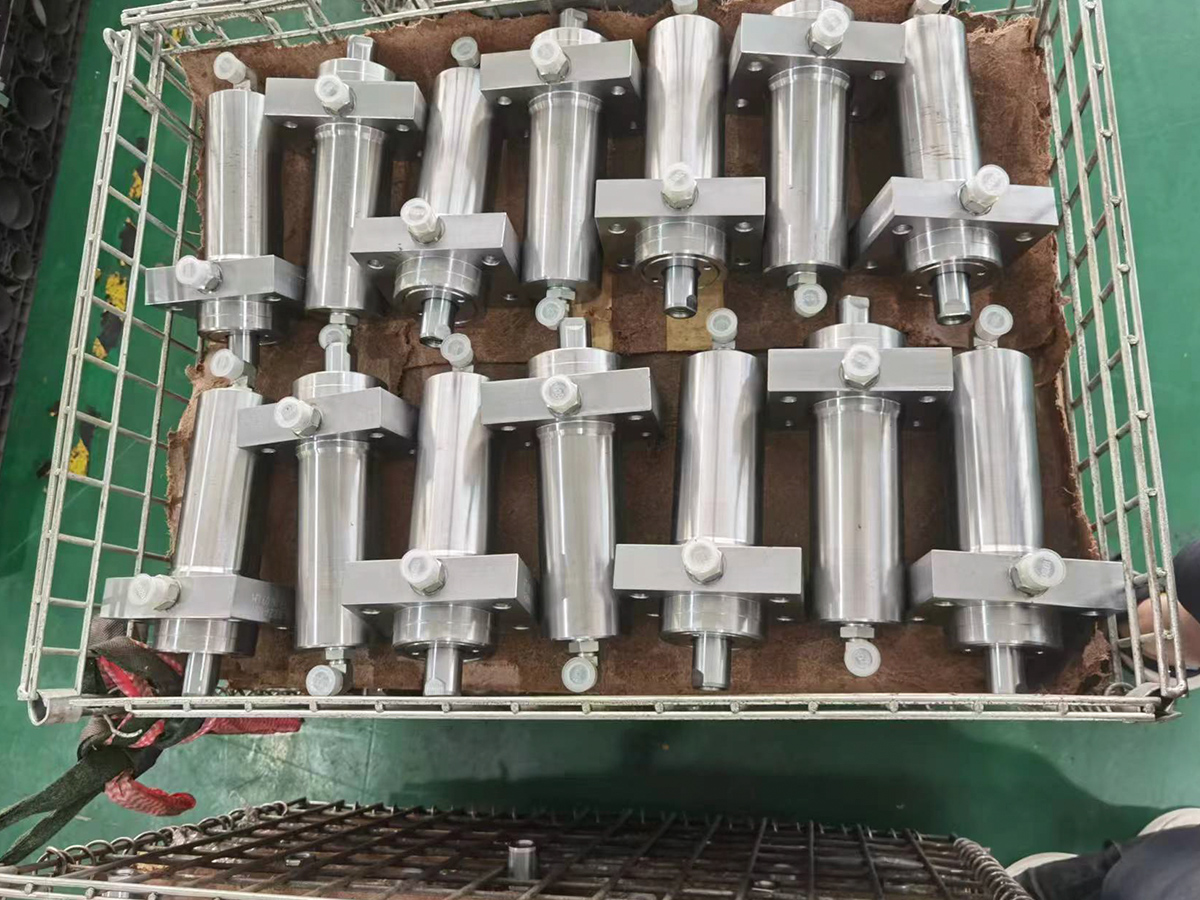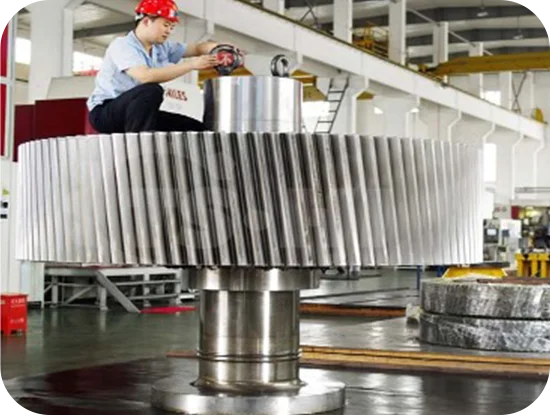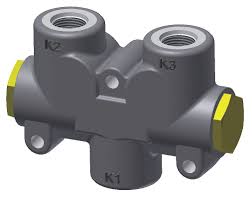Hydraulic cylinders are important equipment widely used in industrial applications. They convert hydraulic energy into mechanical energy through hydraulic systems to achieve push and pull movement of equipment. One of the core components of hydraulic cylinders is the piston rod, which is directly connected to the external load and bears high pressure and load from the hydraulic system. In order to ensure the efficient operation and long life of the hydraulic cylinder, the lubrication of the piston rod is particularly important. This article will explore in depth whether the piston rod of the hydraulic cylinder needs lubrication, as well as the necessity, method, and importance of lubrication and the selection of suitable lubricants.
1. Function and working environment of hydraulic cylinder piston rod
The main function of the hydraulic cylinder piston rod is to convert the hydraulic energy in the hydraulic cylinder into mechanical thrust and transmit this thrust to the external working mechanism. It is usually made of high-strength steel and the surface is hardened to improve wear resistance and corrosion resistance. When the hydraulic cylinder is working, the piston rod will reciprocate around the seal inside the cylinder body. This movement is driven by the pressure of the hydraulic oil, and the surface of the piston rod will rub against the seal, cylinder body, and other components during the process. Since hydraulic cylinders usually work under high pressure and high load conditions, the friction is large and frequent, so lubrication is particularly important.
The working environment of the hydraulic cylinder includes factors such as high temperature, high pressure, and pollution sources, which have a direct impact on the surface and performance of the piston rod. In order to reduce friction, reduce wear, and extend the service life of the hydraulic cylinder, the lubrication of the piston rod cannot be ignored.
2. The importance of lubrication to the piston rod of the hydraulic cylinder
The role of lubrication on the piston rod of the hydraulic cylinder is mainly reflected in the following aspects:
Reducing friction and wear
The piston rod in the hydraulic cylinder will contact the seal in the cylinder body when it reciprocates. Without lubrication, the direct friction between the seal and the surface of the piston rod will cause greater wear, and long-term work may cause the seal to fail, which in turn affects the sealing and efficiency of the hydraulic cylinder. Proper lubrication can form a lubricating film between the piston rod and the seal, effectively reducing friction, reducing wear, and extending the service life of the components.
Prevent corrosion and rust
The hydraulic oil in the hydraulic system is sometimes affected by the external environment and is prone to absorb moisture in the air to form moisture or corrosive substances, which may cause rust or corrosion on the surface of the piston rod. Lubricants can provide a protective barrier for the piston rod to prevent moisture and air from contacting the metal surface and reduce the occurrence of corrosion and rust.
Improve the sealing effect
The seals in the hydraulic cylinder are responsible for preventing hydraulic oil leakage and external contaminants from entering the cylinder body. If the piston rod surface is smooth and has sufficient lubrication, the seal can better contact the piston rod, forming a stable sealing effect, and preventing hydraulic oil leakage and impurities from entering the hydraulic system.
Reduce temperature rise
Lubrication can effectively reduce the friction resistance of the hydraulic cylinder during operation, thereby reducing the heat generated by friction. Under high load and high-speed operation, the operating temperature of the hydraulic cylinder will rise rapidly, and the use of lubricants can help disperse heat, reduce the surface temperature of the piston rod, and prevent the temperature from rising too high and causing the performance of the hydraulic system to decline.
Improve the efficiency of the hydraulic cylinder
Lubrication can also improve the efficiency of the hydraulic cylinder and reduce energy loss caused by friction. Through proper lubrication, the hydraulic system can achieve more efficient work at lower energy consumption and optimize the performance and stability of the hydraulic system.

3. Common ways to lubricate the piston rod of the hydraulic cylinder
The piston rod of the hydraulic cylinder can be lubricated in a variety of ways, mainly depending on the working environment, load conditions, and design requirements of the hydraulic system. The following are several common lubrication methods:
Direct oil injection lubrication
Direct oil injection lubrication is one of the most common lubrication methods. In this method, the hydraulic system injects lubricating oil directly into the surface of the piston rod through pipes and pipe joints. This lubrication method can ensure that the piston rod remains lubricated during operation, reduce friction and wear, and maintain the efficient operation of the hydraulic system.
Self-lubricating seal ring
The self-lubricating seal ring is a method of automatically releasing lubricating oil through the lubricating oil or grease inside the seal when the hydraulic cylinder is working. This method can provide continuous lubrication between the piston rod and the seal ring to avoid wear caused by friction. Self-lubricating seal rings are often used in more complex or special hydraulic cylinder systems, especially in high-temperature or high-pressure environments.
Grease coating
Coating grease on the surface of the piston rod of the hydraulic cylinder is also a common lubrication method. Grease has high viscosity and can form a thicker lubricating film on the surface of the piston rod, effectively reducing friction. In some applications with harsh environments, grease can provide longer lubrication protection.
Lubricating oil pump system
In some more complex hydraulic systems, the lubricating oil pump system will circulate the lubricating oil to various parts of the hydraulic cylinder, including the piston rod, through a special oil pump. This method can ensure that the lubricating oil is evenly distributed in various important parts of the hydraulic cylinder, ensuring that the surface of the piston rod is always in the best lubrication state.
4. Choose the right lubricant
The choice of lubricant is crucial to the performance and service life of the hydraulic cylinder. Different hydraulic cylinder working conditions require different types of lubricants. The following are several factors to consider when choosing a lubricant:
Lubricant viscosity
The viscosity of the lubricant directly affects its ability to form a lubricating film on the surface of the piston rod. Lubricating oil with too low viscosity may cause the lubricating film to be too thin and unable to effectively reduce friction; while lubricating oil with too high viscosity may increase friction resistance and cause energy loss. Therefore, a lubricant with a suitable viscosity should be selected to meet the actual working needs of the hydraulic cylinder.
Lubricant temperature stability
Hydraulic cylinders often work in high-temperature environments, and lubricants must have good high-temperature stability to prevent oxidation, decomposition, or loss of lubrication due to high temperature. Especially in high-temperature environments, it is crucial to choose a lubricant that can maintain lubrication performance and has high-temperature resistance.
Corrosion resistance
Lubricants should have good corrosion resistance, especially when working in a wet environment. Choosing a suitable lubricant can effectively prevent moisture and impurities from corroding the piston rod and ensure the long-term stable operation of the hydraulic system.
Lubricant anti-wear performance
The anti-wear performance of the lubricant is crucial for the long-term operation of the hydraulic cylinder. High-quality lubricants can form a solid lubricating film on the surface of the piston rod, effectively reducing friction, reducing wear, and extending the service life of the piston rod and seals.
Hydraulic oil compatibility
The selection of lubricants also needs to consider compatibility with the hydraulic oil in the hydraulic system. Different types of lubricants may react chemically with the hydraulic oil, resulting in performance degradation, so it is necessary to ensure good compatibility between the lubricant and the hydraulic oil.
Does the piston rod of the hydraulic cylinder need lubrication? The answer is yes. Proper lubrication plays a vital role in the performance, service life, and operating efficiency of the hydraulic cylinder. Lubrication can reduce friction, reduce wear, prevent corrosion, maintain the sealing effect, and optimize the operating efficiency of the hydraulic cylinder. Therefore, the correct selection of lubrication methods and lubricants, and regular lubrication maintenance are necessary to ensure the normal operation of the hydraulic cylinder and extend its service life.
The lubrication of the hydraulic cylinder is not only to improve work efficiency but also the key to maintaining the stability of the hydraulic system and extending the service life of mechanical equipment. According to different working conditions, choosing the right lubricant and lubrication method can provide a strong guarantee for the long-term and efficient operation of the hydraulic cylinder.
As a professional hydraulic cylinder dealer, we are well aware of the importance of hydraulic cylinder piston rod lubrication to ensure the efficient and stable operation of the hydraulic system. The hydraulic cylinder products we provide have all undergone rigorous quality testing, and we recommend the use of suitable lubrication solutions and high-quality lubricants to minimize friction, wear, and corrosion and extend the service life of the hydraulic cylinder. We are committed to providing customers with professional technical support and maintenance advice to ensure that your hydraulic system always maintains the best working conditions.
www.toringcylinder.com
Ningbo Toring Machinery Manufacturing Co., Ltd.

